ORDO TEMPLI ORIENTIS
Fahrenheit 418 Information
Lawyers and Historians:
The 'Caliphate' versus the Truth?
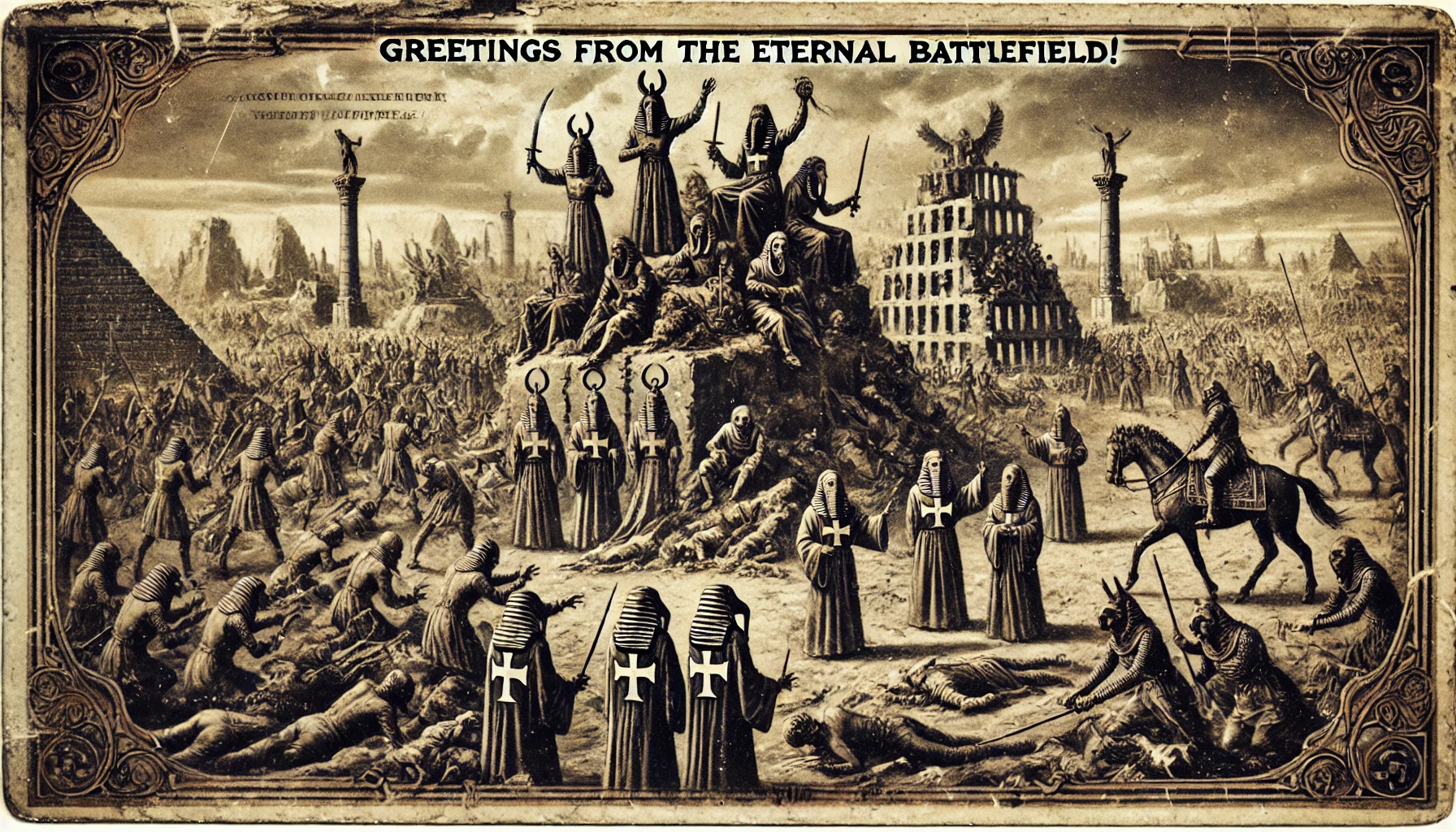
[AI-generated image]
|
Writing accurate historical accounts is inherently complex, particularly when the historical record intersects with legal determinations, which may reflect procedural outcomes rather than empirical truth.
The American Ordo Templi Orientis — commonly known as the 'Caliphate' O.T.O. — was formally incorporated in 1977 and has, since its inception, been involved in a number of legal proceedings. These include disputes over organizational leadership, the dissemination of contested ritual and doctrinal material, and, perhaps most notably, the ownership of Aleister Crowley’s literary estate. In 1985, a United States District Court issued a ruling that effectively transferred the rights to Crowley’s copyrights to the newly formed 'Caliphate' O.T.O. in the U.S. This decision was rendered despite substantial ambiguities in the chain of transmission and in the absence of a robust historical examination of Crowley’s testamentary intentions. Nevertheless, the ruling had the immediate and tangible effect of authorizing the transfer of substantial copyright revenues into the accounts of the 1977-incorporated organization. Following this juridical success, the 'Caliphate' began to present itself as the legal and spiritual successor to the historical O.T.O. In a move that might be described — without undue polemic — as a fusion of administrative pragmatism and historical opportunism, the group introduced a classificatory scheme of historical truth:
In effect, the outcome of the 1985 litigation allowed the 'Caliphate' O.T.O. not only to control key intellectual property assets but also to curate the historical narrative in ways that reinforced its claims to legitimacy — judicially sanctioned, selectively esoteric, and historiographically expedient. 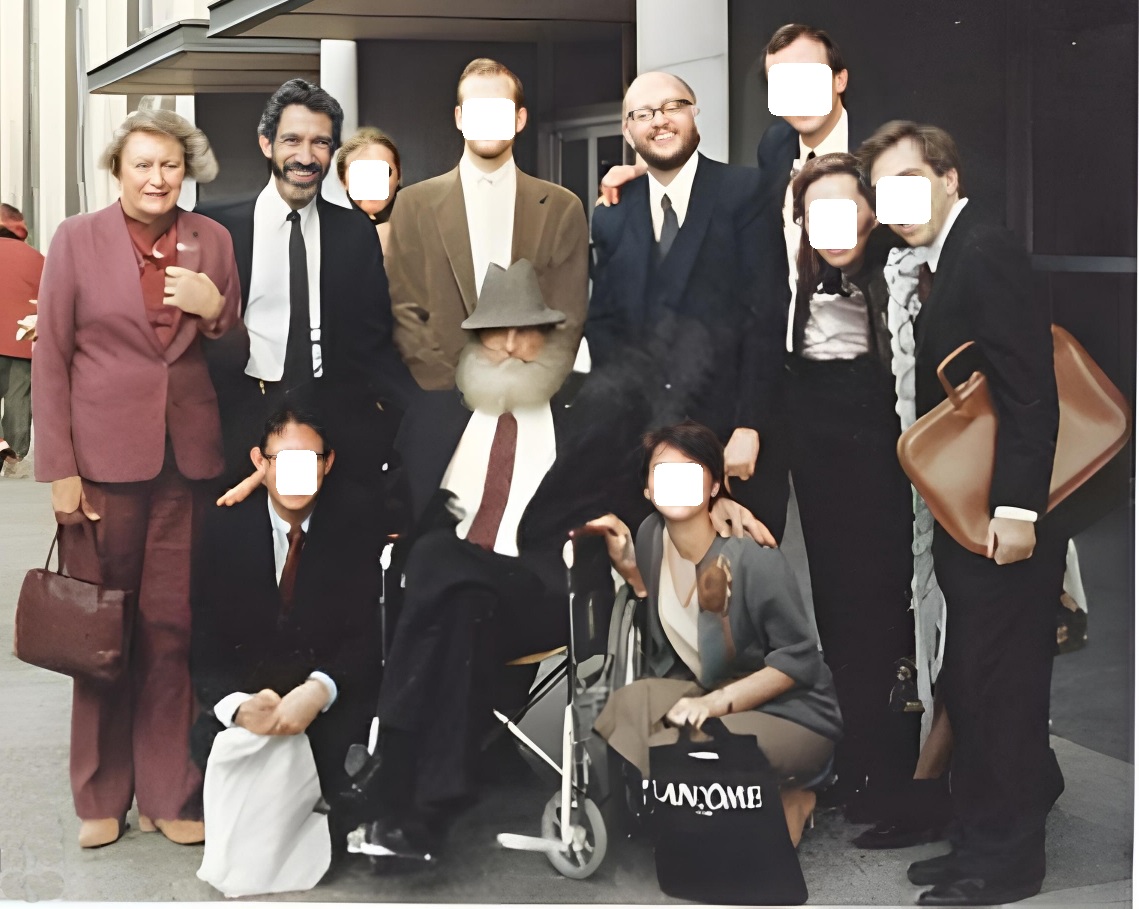
The American Ordo Templi Orientis, 'Caliphate,' with Grady Louis McMurtry, 1985, in front of a court building. After Karl Germer passed away in 1962, a number of individuals sought to assume sole leadership of Germer's Crowley–O.T.O. According to Germer's will, the ultimate decision rested with his widow and Friedrich Mellinger. Sascha Germer initially favored Brazilian Marcelo Ramos Motta of the F.R.A., but eventually determined that Swiss national H.J. Metzger had been her husband's preferred candidate. Subsequently, the competing claims of Grady Louis McMurty and Motta for leadership of the O.T.O. were resolved through legal proceedings. Metzger's existence was not mentioned at all by all parties in court. On the one hand, it was a discussion in America; on the other hand, everyone was aware that Metzger was the only valid candidate for leadership of the O.T.O. So why complicate everything? 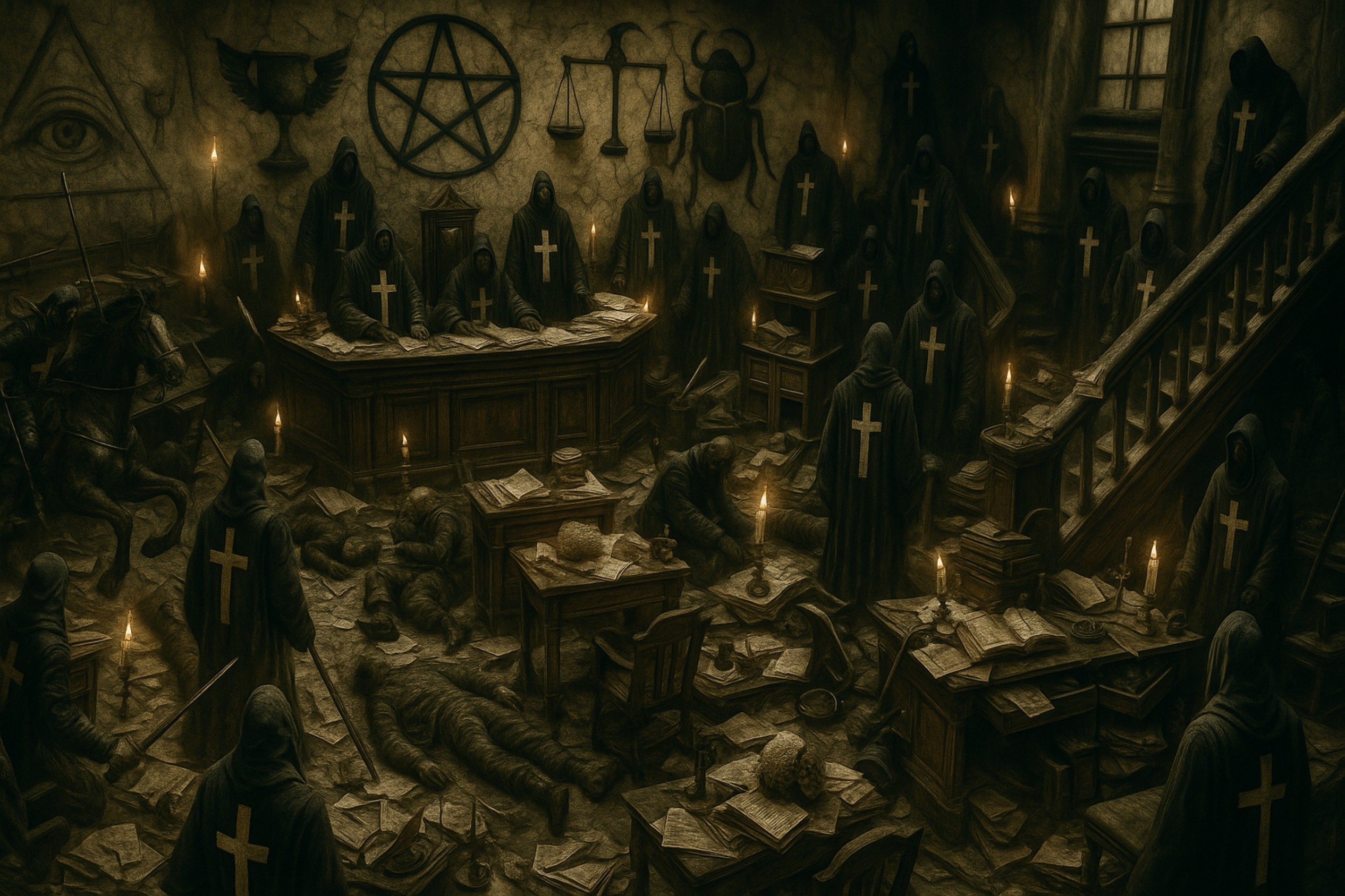
[AI-generated Image] Court Decisions1) Maine 1984. To the disadvantage of the 'Caliphate':2) California 1985 to the favour of the 'Caliphate': 3) The 'Caliphate' bought all possibly existing copyrights (so far as subsisting) from the Official Receiver in 1991 (= English Crown). The 'Caliphate' maintains that it is the rightful successor to the Ordo Templi Orientis (O.T.O.) and therefore the owner of the copyrights in question. However, even if another court were to reach a different conclusion than the Los Angeles court, the 'Caliphate' claims to be the owner of the copyrights because it acquired them from the official receiver. It is worth noting that the question of whether the 'Caliphate' is the legitimate successor to the O.T.O. and whether it has the legal right to the copyrights are separate issues that may require different lines of argument and evidence to resolve. 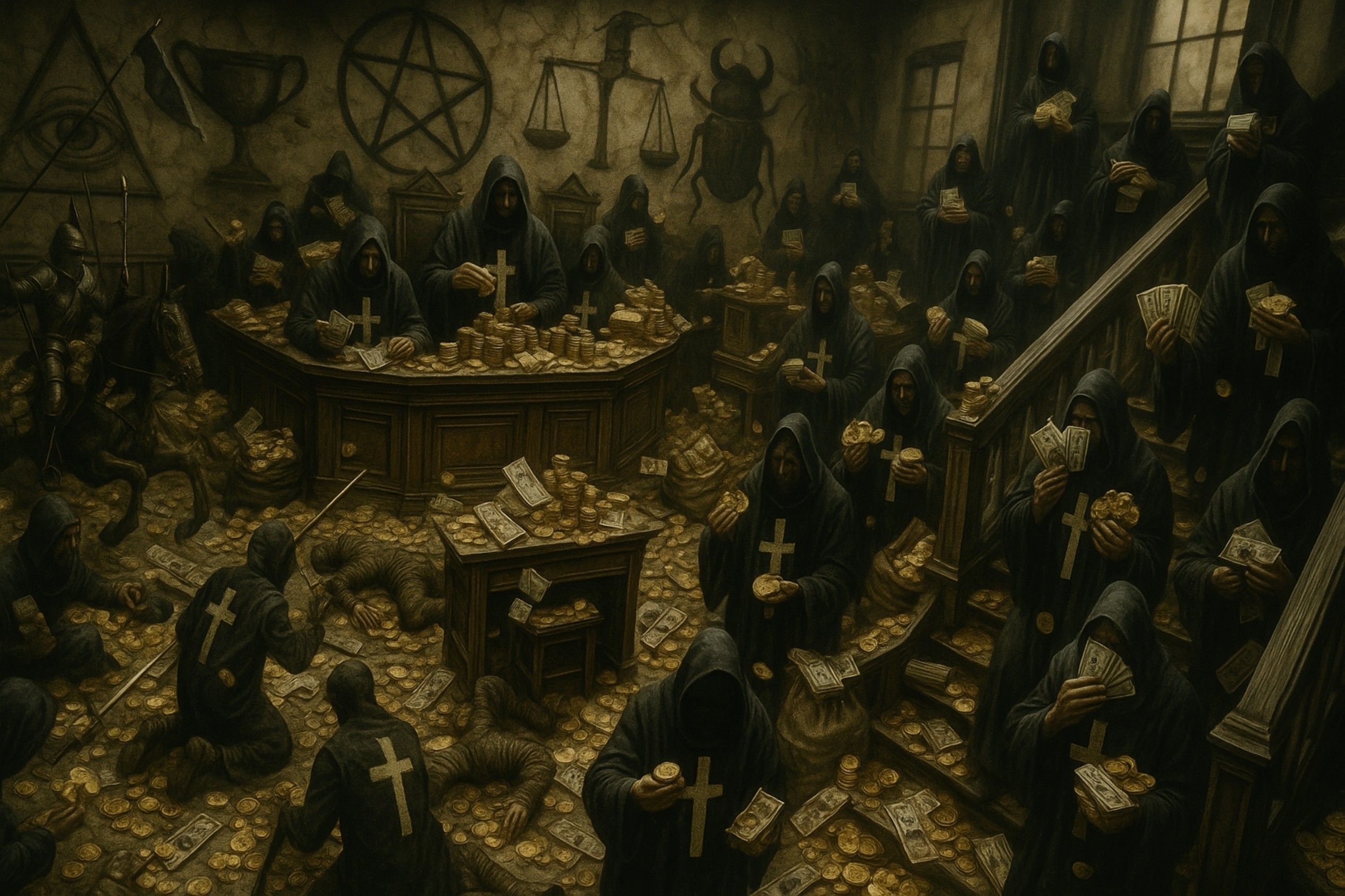
[AI-generated Image] Legal Memorandum: Duration of Copyright in Previously Unpublished Works in the United Kingdom1. Legal BasisThe relevant legislation is the: (UK Public General Acts, 1988 c. 48) Entry into force: 1 August 1989 Full text available at: https://www.legislation.gov.uk/ ukpga/1988/48 2. Special Provision on the Term of Copyright in Previously Unpublished WorksThe key provision is found in: (Inserted by Schedule 1, Paragraph 2 of the Copyright and Related Rights Regulations 1996/2967) Exact wording: Where immediately before the commencement of this Part copyright subsisted in a literary, dramatic, musical or artistic work, or a film, and— (a) the work had not been made available to the public before 1 August 1989; and (b) the copyright in the work would otherwise have expired before the end of 2039, then, notwithstanding anything in the foregoing provisions of this Chapter, copyright in the work shall continue to subsist until the end of 2039. Source: UK Legislation – Copyright, Designs and Patents Act 1988, Section 170A 3. Historical BackgroundThis provision was introduced in 1996 to incentivise the publication of old and previously unpublished works. The extended term of protection until 31 December 2039 was intended as a reward mechanism. However, in practice, this rule can also be used to suppress distribution where questions arise as to whether earlier publications were legally authorised. 4. Legal RelevanceThis provision applies particularly to works that:
5. Further Sources
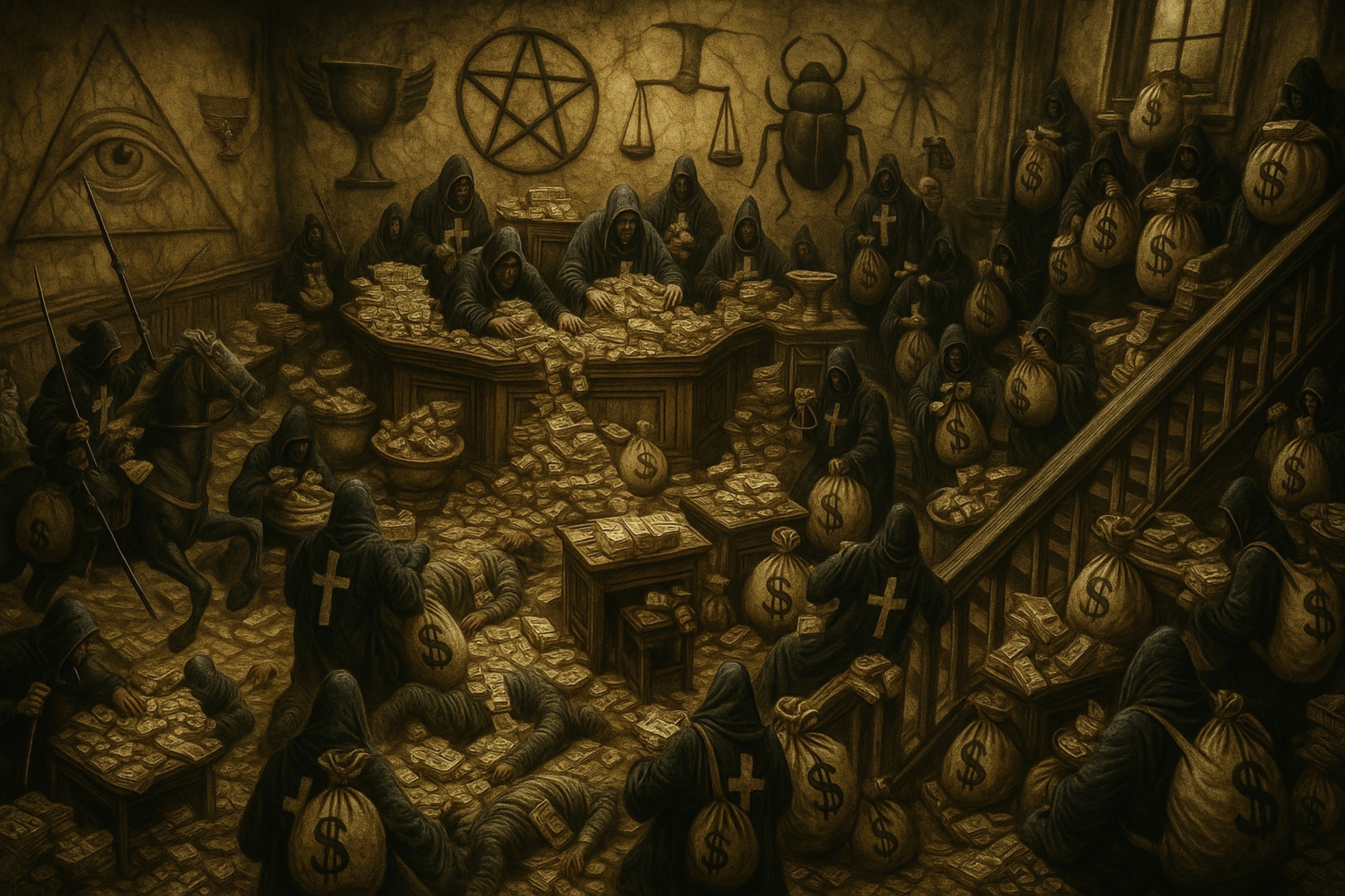
[AI-generated Image] Warburg-Collection of CrowleyanaThere has been a project to microfilm the so-called Warburg-Collection of Crowleyana in London, the results of which has been published as: "Yorke Collection", microfilm edition New York: Ordo Templi Orientis; London: Warburg Institute, 2002. This collection does not contain the entire unpublished material (coming to 25,000+ pages in total, including some annotated books) in the Gerald Yorke Collection (which was inspired by Ellic Howe), only the portions which are copyrighted (so far as subsisting) by the 'Caliphate’ since winning the lawsuit against Anthony Naylor [see below]. Consequently it chiefly includes material authored by Aleister Crowley.The public can try to obtain a copy on 35mm microfilm via inter-library loan. WorldCat lists several university libraries in the United States who have copies: Syracuse University, Indiana University, the University of Texas (Ransom Center) and Northwestern University, as well as the University of Amsterdam and the Oskar Schlag Collection at the Zurich Municipal Library. The costs of filming all that material were paid from the damages awarded to 'Caliphate' as a result of the 1999-2002 copyright suit and the profits from sales of the films over and above the costs of duplication went back to Warburg. 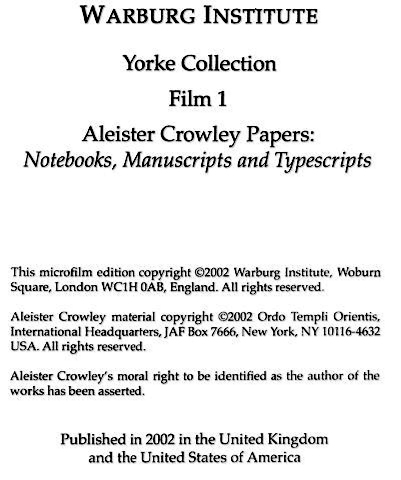
|
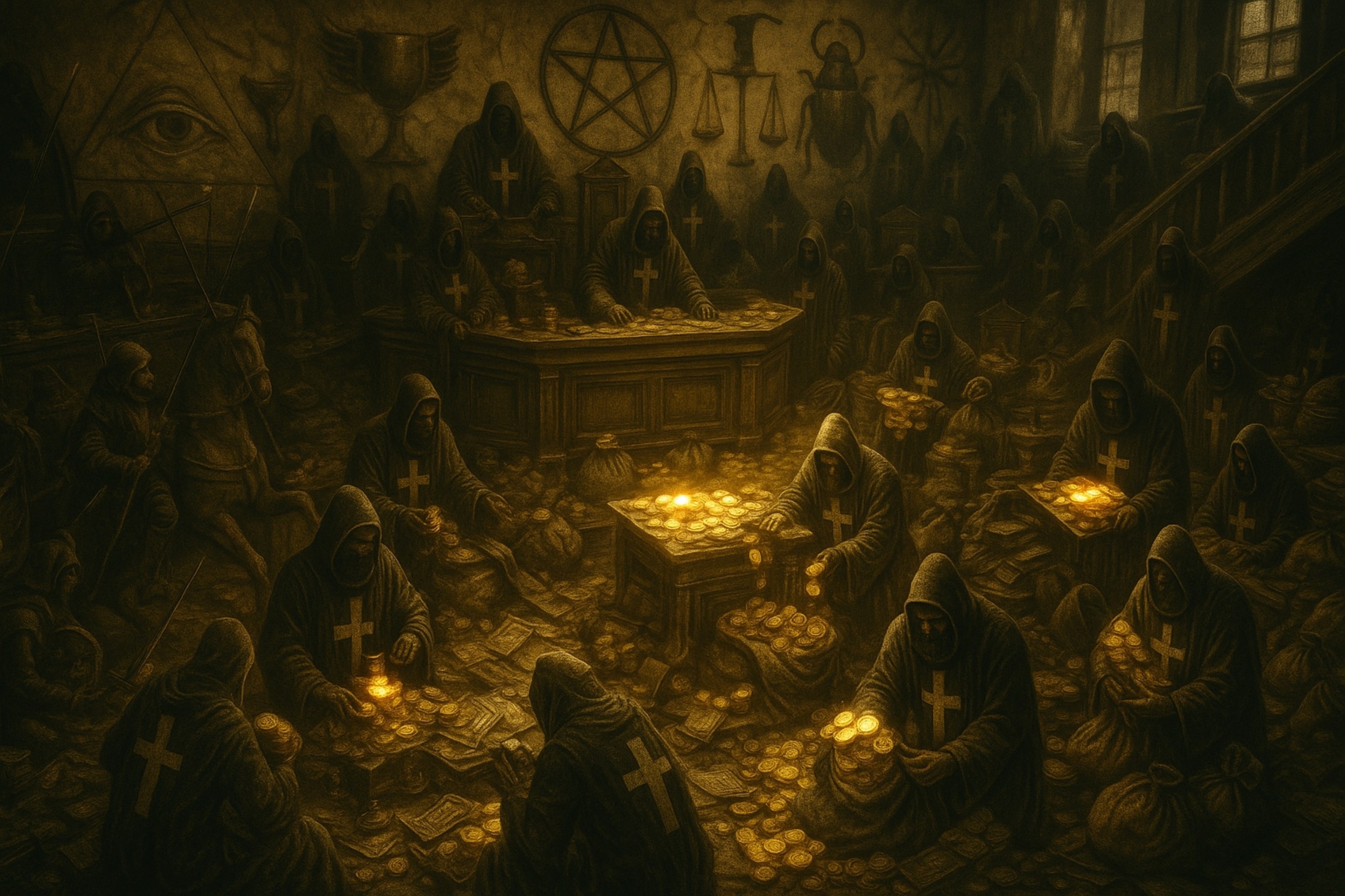
[AI-generated Image]

Kenneth Grant |
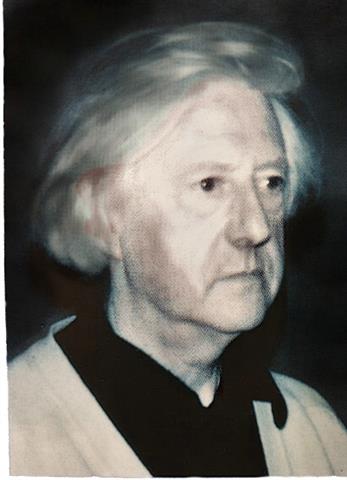
John Symonds |
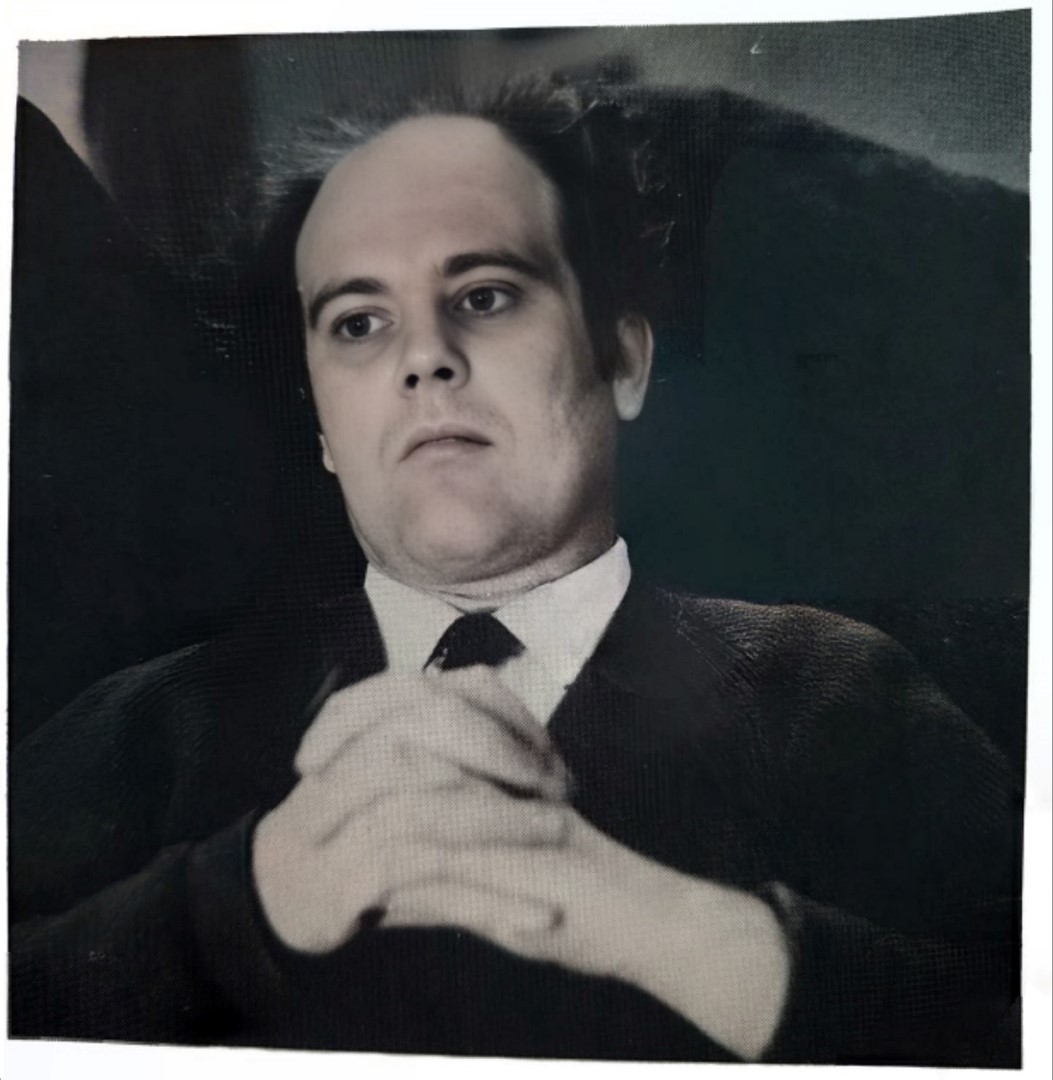
Francis King |
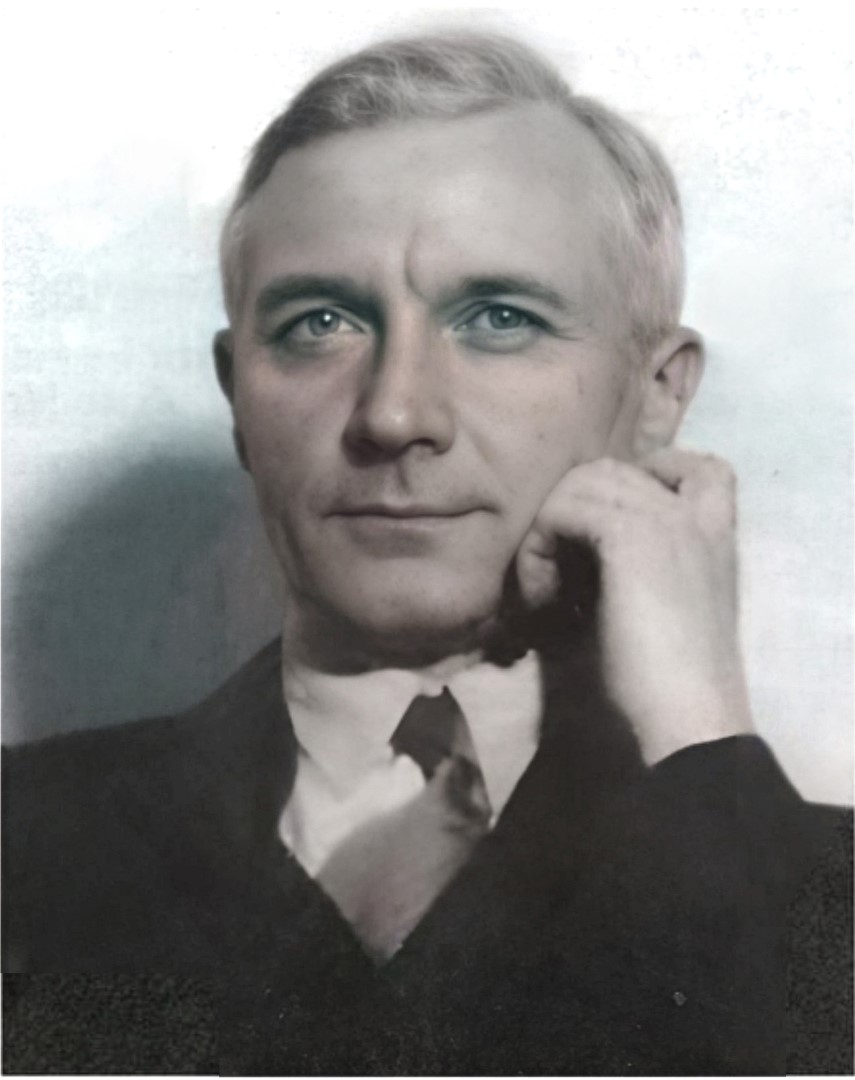
Karl Germer |
Items of Historical InterestIn 1930, Karl Germer sent a description of the Aleister Crowley LTD. to Fernando Pessoa.Aleister Crowley: This is the Last Will. Karl Germer, Louis Wilkinson and Lady Frieda Harris. National Grandmasters and OHOs of the O.T.O. Some background informationLawyers and Historians: The 'Caliphate' versus the Truth? — Introduction.The Maine Decision 1984 [to the disfavour of the 'Caliphate'] | The California Decision 1985 [to the favour of the 'Caliphate']. Purchase of the copyrights on Aleister Crowley from the Official Receiver (OR). The 1999 Particulars of Claim ['Caliphate']. Financial Reports 1996-1999 of the 'Caliphate'. erraneous opinion on the International Copyright Situation. Text by Anthony Naylor before he lost his case against the 'Caliphate' in 2000. What the 'Caliphate' does not want you to know. Text by Anthony Naylor before he lost his case against the 'Caliphate' in 2000. Crowley's Probate. Text by Anthony Naylor before he lost his case against the 'Caliphate' in 2000. 'Caliphate' Capers. Text by Anthony Naylor before he lost his case against the 'Caliphate' in 2000. Based upon a draft by James Graeb. Structure, Constitutions and Money. Partly written by Anthony Naylor before he lost his case against the 'Caliphate' in 2000. Anonymous: Burning Down The House. 'Caliphate', Argenteum Astrum, James Wasserman, Donald Trump — Written in 2021. Library of Congress, letter dated September 6, 2000. 2000, July: An analysis of the Bylaws of the 'Caliphate' and its Board of Directors. By James Graeb. 2000, July: Incorporation of O.T.O., Argentum Astrum and E.G.C.. 2000: "Caliphate-O.T.O. Win" and the The Writing on the Wall. Text by Anthony Naylor before he lost his case against the 'Caliphate' in 2000. Court Order of October 2000. James T. Graeb, co-founder and IX° of the 'Caliphate', a lawyer, calls the 'Caliphate' a "Puppet Show Piece" and files suit vs William Breeze, William Heidrick, Marcus Jungkurth et alii in 2001. The 2002 Ruling. The Summary so far. Ordo Templi Orientis - Trade Mark - Starfire Publishing Limited. Some ThingsCourt Case Hermann Joseph Metzger vs Walter Englert in the 1970s.1991 Opinion of a German prosecuting attorney's office on the body of the 'Caliphate'. Censorship in the UK. The 'Caliphate' Book Patrol: Fahrenheit 418. Paul Joseph Rovelli versus the 'Caliphate', New York January 2000. 1998, July 17 - 2000 October Austrian situation on Copyrights [German and English]. Trademark O.T.O.. By Leslie Anne Childress. 2007 'Caliphat' Kasino in Deutschland. Other BackgroundThe 'Caliphate'.Discussion about the instrument of succession. An introduction to the background, followed by a transcript of this discussion. Minutes of the 11 IX°s 'Caliphate' election in 1985 where it was clearly said that the 'Caliph' is not the juro OHO. Playgame of an O.T.O.-Fatamorgana — Statistics, Censorship, Name Dropping. 2011.
Traduzione italiana: La versione play-game di un O.T.O.-Fatamorgana Fetish, Self-Induction, Stigma and Rôleplay. 2011.
Traduzione italiana: Il feticcio, l’auto-induzione, lo stigma, il gioco di ruolo. Tlumaczenie polskie: Fetysz. Rytualy. Resocjalizacja: Tozsamosc przez stygmat. Autoindukowana schizofrenia. Odgrywanie ról. По русски: Фетиш, самоиндукция, стигма и ролевая игра. 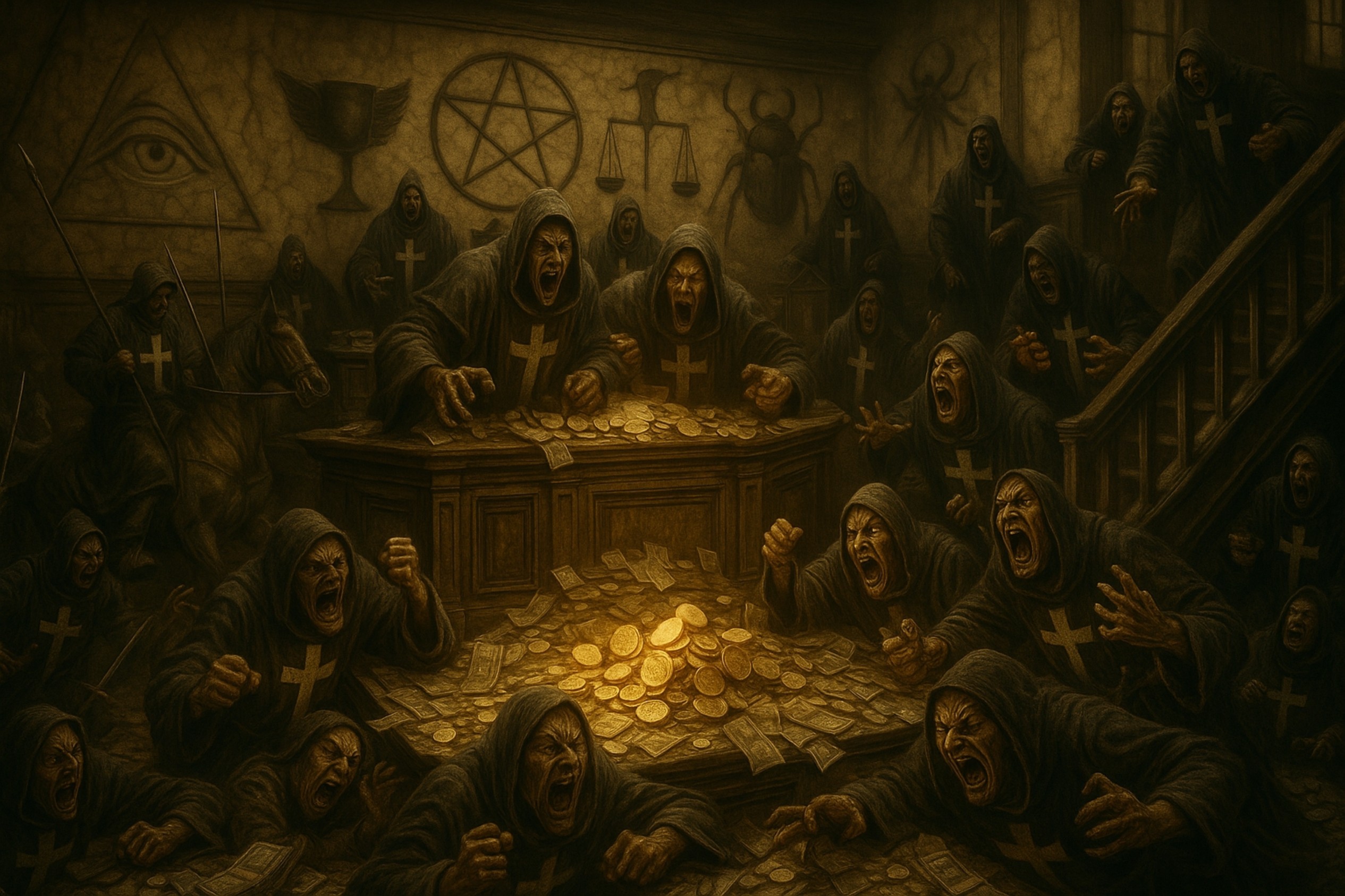
[AI-generated Image] More about all this in: Andreas Huettl and Peter-R. Koenig: Satan - Jünger, Jäger und Justiz O.T.O. Phenomenon navigation page | main page | mail What's New on the O.T.O. Phenomenon site? Scattered On The Floor Browsing Through The Rituals 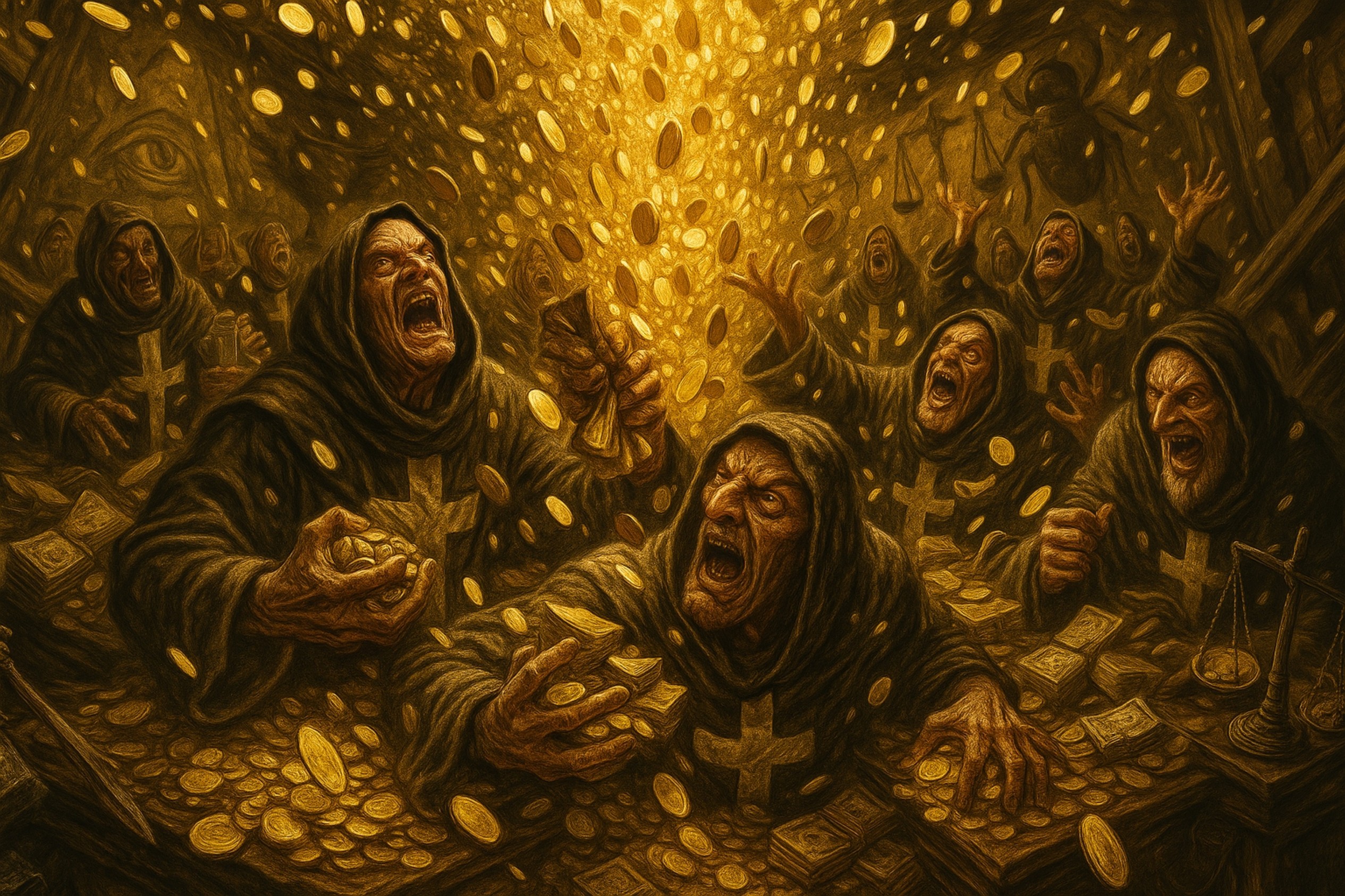
[AI-generated Image]
|

